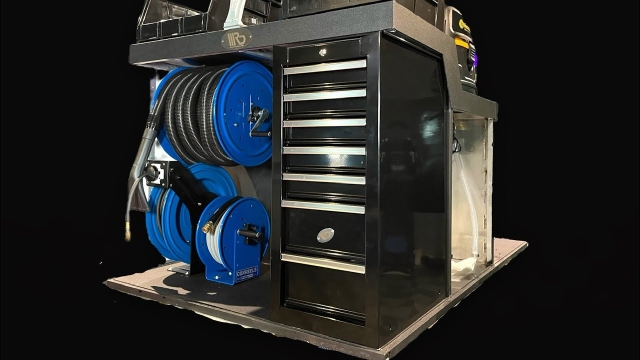
In every home, appliances play a crucial role in our daily lives, making tasks like laundry, cooking, and cleaning more convenient. However, when these essential machines start to malfunction, it can feel overwhelming and costly to call a professional. The good news is that many common appliance issues can be resolved with a little patience and the right guidance. With some basic tools and a willingness to learn, you can tackle repairs yourself, saving both time and money.
This article aims to empower homeowners by providing practical tips and step-by-step guidance on how to repair a washer, dryer, refrigerator, dishwasher, oven, and garbage disposal. Whether you’re dealing with a leaky washer or a slow-disposing garbage disposal, we will help you understand the common problems and how to address them effectively. Embrace your inner handyman and discover the satisfaction of mastering appliance repairs in your home.
Washer Troubleshooting and Repairs
When your washer stops working, it can feel overwhelming, but many issues can be resolved with some basic troubleshooting. Start by checking the power supply and ensuring that the machine is plugged in properly. Look for any blown fuses or tripped circuit breakers. If the washer does not start, ensure the lid is securely closed, as many models have safety switches that prevent operation when the lid is ajar.
If your washer is running but not filling with water, inspect the hose connections and make sure they are not kinked or clogged. Also, verify that the water supply valves are turned on. If water is not draining, the problem could be a clog in the drain hose or a malfunctioning pump. Clearing the hose and checking the pump for obstructions can often resolve these issues.
For more complex problems like excessive noise or vibration, check that the washer is level and that clothes are evenly distributed in the drum. If you hear grinding or knocking sounds, it may indicate worn bearings or other internal components needing replacement. Always consult the manufacturer’s manual for specific repair guidance, and if needed, don’t hesitate to call a professional for assistance if the problem persists.
Dryer Maintenance and Fixes
Maintaining your dryer is essential to ensure it operates efficiently and lasts for years. Regularly cleaning the lint filter is the simplest yet most crucial step you can take. After every load, remove the lint from the filter to prevent clogs and reduce fire hazards. Additionally, periodically vacuum around the dryer to remove lint that may accumulate in the venting area. This simple maintenance can improve airflow and significantly enhance drying performance.
If your dryer is not heating properly, the issue may lie with the heating element or thermostat. Start by checking the power supply to ensure the dryer is receiving adequate voltage. If the power is functioning, test the heating element for continuity using a multimeter. If the element is faulty, it will need replacement. Clearing out blocked vent hoses can also resolve heating issues, as airflow problems can prevent the dryer from generating heat effectively.
In cases of unusual noises or failure to start, the problem may relate to the drive belt or motor. Inspect the drive belt for signs of wear or damage, as a worn belt can slip off the drum or fail entirely, preventing the dryer from operating. Additionally, listen for any strange sounds that might suggest the motor is struggling. If the motor is malfunctioning, it may require professional service. Regular inspections and timely fixes can help keep your dryer running smoothly and efficiently.
Refrigerator Problems and Solutions
A common issue with refrigerators is inconsistent cooling, which can lead to spoiled food. If you notice that some items are warm while others are cold, check the thermostat settings first. Make sure they are correctly set for optimal cooling. If the settings are fine, inspect the condenser coils. Dust and debris can accumulate on these coils, making it difficult for the fridge to maintain a low temperature. Cleaning the coils with a vacuum or brush can often resolve the problem.
Another frequent problem is unusual noises coming from the refrigerator. These noises can signify various issues, such as a malfunctioning compressor or a faulty fan. If the sounds are loud or persistently unusual, it may indicate a mechanical failure. Start by checking the location of the noise. If the noise is from the back, it could be the compressor, while noises from inside could be related to the fan. Listening carefully can help you pinpoint the source.
Lastly, leaks under the refrigerator are concerning and can lead to water damage. The first step is to check the water supply line for cracks or loose connections if you have a fridge with a water dispenser or ice maker. Additionally, inspect the door seals for any damage, which can lead to moisture buildup. If the seals are compromised, replacing them can eliminate leaks and improve energy efficiency.
Dishwasher Repair Essentials
When your dishwasher is not cleaning dishes effectively, it can be frustrating. Start by checking the spray arms for clogs or blockages. Remove any debris that may be obstructing the water flow to ensure that the spray arms can rotate freely. Additionally, inspect the filter for any food particles that may have accumulated. Cleaning the filter regularly is essential for efficient operation, as a dirty filter can lead to poor cleaning performance.
Another common issue in dishwashers is improper drainage. If you notice standing water at the bottom, there could be a kink in the drain hose or a clogged drain. Inspect the hose for bends and clear any obstructions. If the problem persists, it might be worth examining the dishwasher’s drain pump to ensure it is functioning correctly. A malfunctioning pump could hinder proper drainage and lead to further problems down the line.
https://miamiappliancerepairman.com
Lastly, addressing the door latch is crucial for effective operation. If your dishwasher doesn’t start, it may be due to a faulty door latch that prevents the machine from initiating its cycle. Inspect the latch and the door sensor for damage. Replacing a broken latch is typically an easy fix that can save you from more significant issues. Regular maintenance and addressing these common problems can extend the life of your dishwasher and keep it running smoothly.
Oven and Garbage Disposal Fixes
When dealing with a malfunctioning oven, the first step is to identify the problem. Common issues include the oven not heating up or inconsistent temperatures. Begin by checking the power supply and ensuring the oven is plugged in and the circuit breaker hasn’t tripped. If the oven uses gas, ensure the gas is flowing properly. If these basic checks don’t resolve the issue, inspect the heating elements, temperature sensor, and internal wiring for signs of damage.
Garbage disposals often face similar issues, like being clogged or not turning on at all. If your disposal is making a humming sound but not grinding, it could be jammed. Turn off the power, use an Allen wrench to free the blades, and check for foreign objects blocking the mechanism. If the disposal doesn’t activate, check the reset button located on the bottom of the unit or inspect the electrical connections to ensure everything is secure.
Regular maintenance can help prevent problems with both ovens and garbage disposals. For ovens, keep the interior clean and avoid using it for unintended purposes, like storage. For garbage disposals, run water and occasionally grind kitchen scraps, such as ice cubes and citrus peels, to keep the blades sharp and odor at bay. By mastering these simple repairs, you can extend the life of your appliances and save money on service calls.


